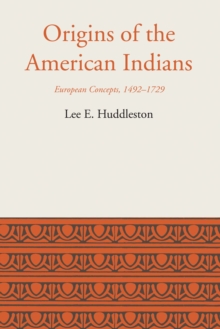
Miners, Merchants, and Farmers in Colonial Colombia Paperback / softback
by Ann Twinam
Part of the LLILAS Latin American Monograph Series series
Paperback / softback
Description
The inhabitants of the department of Antioquía in north-central Colombia have played a unique role in that country’s economic history.
During the colonial period Antioqueño placer miners supplied a substantial portion of New Granada’s gold exports.
Their nineteenth-century descendants pioneered investments in lode mining, colonization, international commerce, banking, stock raising, tobacco, and coffee.
In the twentieth century, Antioqueños initiated the industrialization of the regional capital, Medellín. Many theories have been set forth to account for the special energy and initiative of Antioqueños.
They range from ethnic and psychological interpretations (Antioqueños are descended from Jews or Basques; they are driven to succeed because of status deprivation) to historical explanations that emphasize their geographic isolation, mining heritage, or the coffee-export economy.
In Miners, Merchants, and Farmers in Colonial Colombia, Ann Twinam critiques these theories and sets forth her own revisionist interpretation of Antioqueño enterprise.
Rather than emphasize the alien or deviant in Antioqueño psychology or culture, Twinam re-creates the region’s late colonial economic and social structure and attributes the origins of Antioqueño enterprise to a particular mix of human and natural resources that directed the region’s development toward capital accumulation and reinvestment. Although the existing limitations of their colonial environment may have forced Antioqueños along enterprising pathways initially, the continuation of Antioqueño investments to the present day suggests that their adaptation to a specific economic reality became a way of life transcending the historical conditions that created it.
Information
-
Available to Order - This title is available to order, with delivery expected within 2 weeks
- Format:Paperback / softback
- Pages:206 pages
- Publisher:University of Texas Press
- Publication Date:01/11/1982
- Category:
- ISBN:9780292735613
Information
-
Available to Order - This title is available to order, with delivery expected within 2 weeks
- Format:Paperback / softback
- Pages:206 pages
- Publisher:University of Texas Press
- Publication Date:01/11/1982
- Category:
- ISBN:9780292735613










